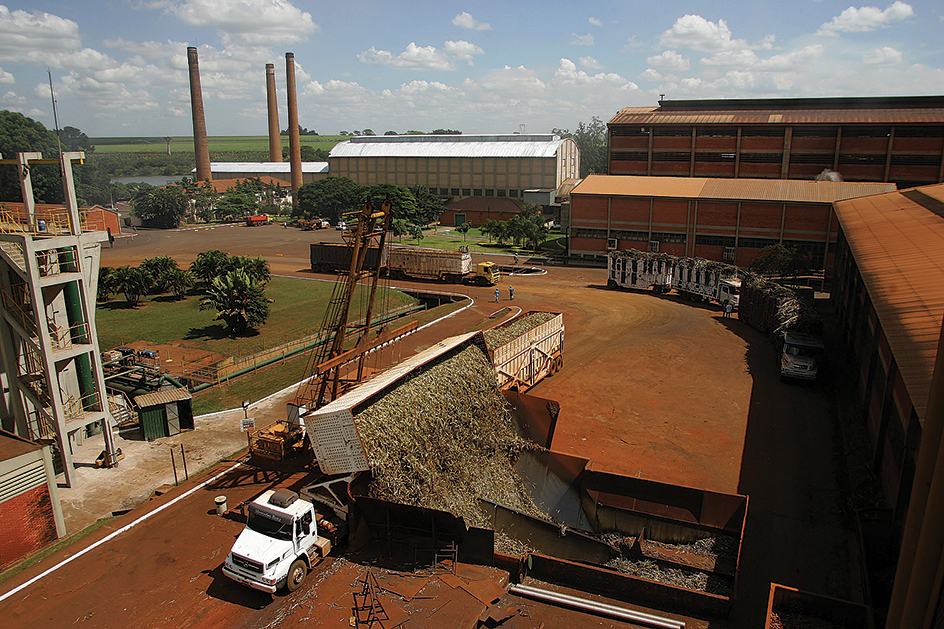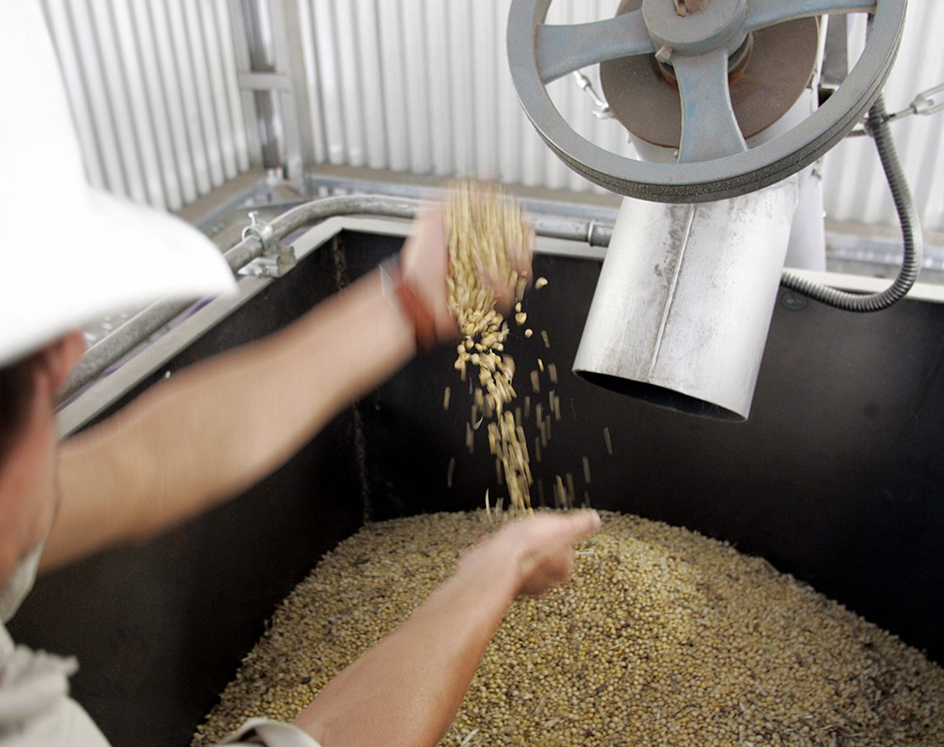Biofuel is an energy-producing substance made from biological materials. Biofuels differ from fossil fuels, such as coal, oil, and natural gas. Fossil fuels are made from once-living material that has been dead for millions of years. This material has been changed over time by heat and compression beneath the ground. There is a limited supply of fossil fuels on Earth, but the materials for making biofuels can be regrown every year. Thus, biofuels are a renewable form of energy.

Liquid biofuels can be used in place of fossil fuels in transportation and industry. For example, a biofuel called ethanol can relatively easily replace gasoline in automobiles. Biodiesel performs much like the diesel fuel that powers large trucks and trains.
Some biofuels are made from food crops. Corn grain and sugar cane can be processed into ethanol. Soybeans and oil palms are used to make biodiesel.

Using food crops to create biofuel can reduce the human food supply. For this reason, people are researching ways to make biofuels from nonfood plant materials and other biological materials. For example, biofuels can be derived from algae, wood, animal wastes, and straw without necessarily reducing the food supply. But turning such sources into fuel is difficult and expensive. Scientists and engineers are working to develop more efficient and inexpensive processes to create such biofuels.

See also Agriculture (Fuel and raw materials) ; Cellulose (Industrial use) ; Ethanol ; Renewable energy ; Switchgrass .
